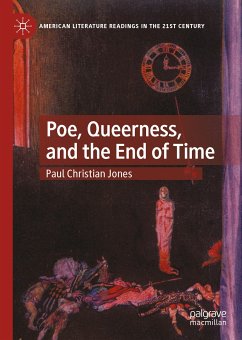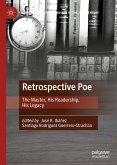Jones establishes, definitively, the validity of considering Poe as a queer author. Indeed, future studies will have to make a strong case about why we should not read Poe as queer. This galvanizing book is most welcome.--David Greven, Professor of English at the University of South Carolina and author of Gender Protest and Same-Sex Desire in Antebellum American Literature
This book builds upon recent theoretical approaches that define queerness as more of a temporal orientation than a sexual one to explore how Edgar Allan Poe's literary works were frequently invested in imagining lives that contemporary readers can understand as queer, as they stray outside of or aggressively reject normative life paths, including heterosexual romance, marriage, and reproduction, and emphasize individuals' present desires over future plans. The book's analysis of many of Poe's best-known works, including "The Raven," "The Fall of the House of Usher," "The Black Cat," "The Masque of the Red Death," and "The Murders in the Rue Morgue," show that his attraction to the liberation of queerness is accompanied by demonstrations of extreme anxiety about the potentially terrifying consequences of non-normative choices. While Poe never resolved the conflicts in his thinking, this book argues that this compelling imaginative tension between queerness and temporal normativity is crucial to understanding his canon.
Paul Christian Jones is Professor of English at Ohio University, USA, and the author of two books, Unwelcome Voices: Subversive Fiction in the Antebellum South (2005) and Against the Gallows: Antebellum American Writers and the Movement to Abolish Capital Punishment (2011).
Dieser Download kann aus rechtlichen Gründen nur mit Rechnungsadresse in A, B, BG, CY, CZ, D, DK, EW, E, FIN, F, GR, HR, H, IRL, I, LT, L, LR, M, NL, PL, P, R, S, SLO, SK ausgeliefert werden.









